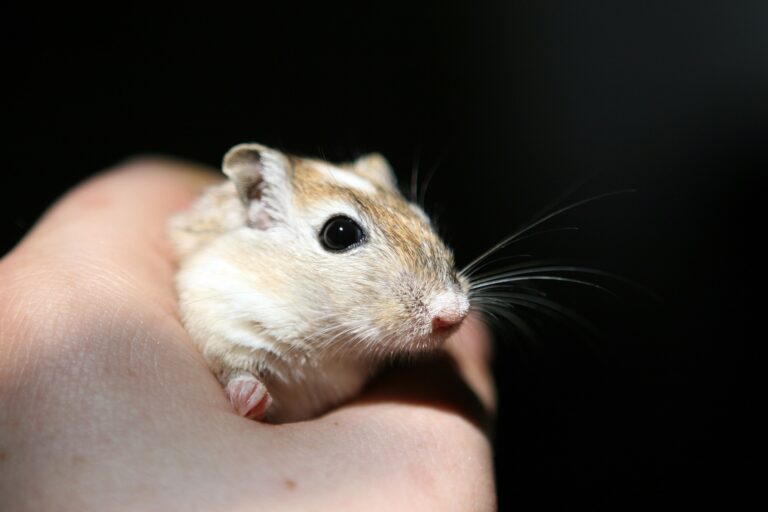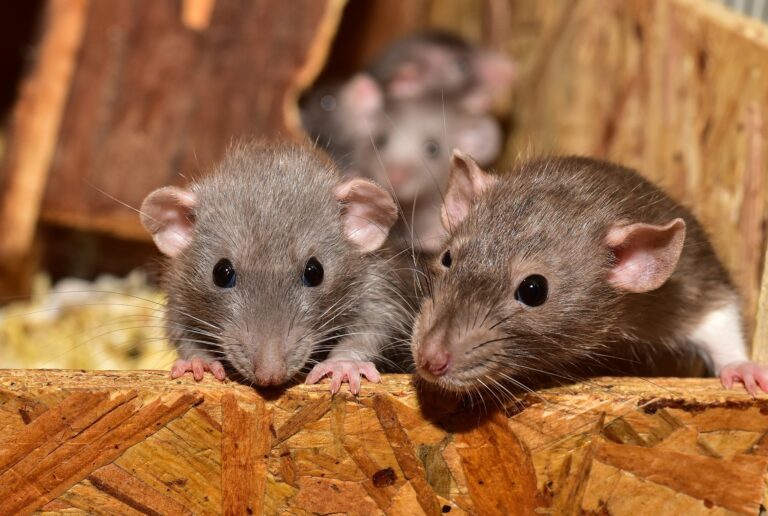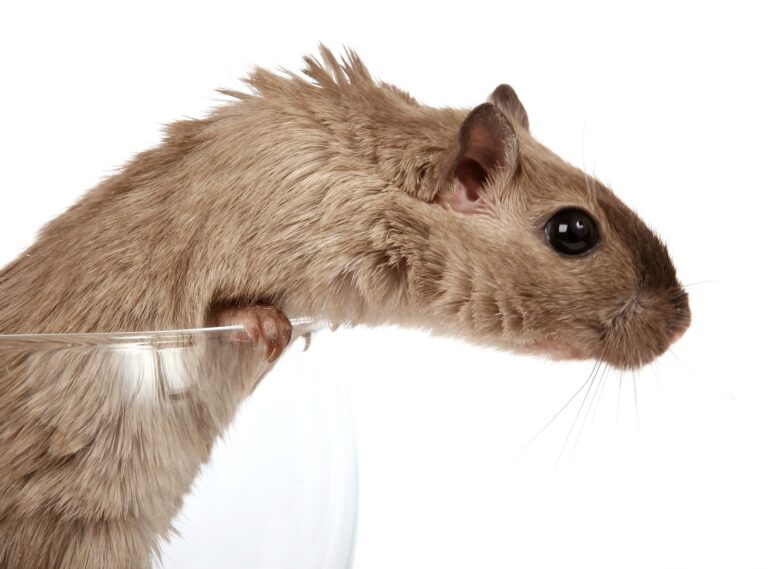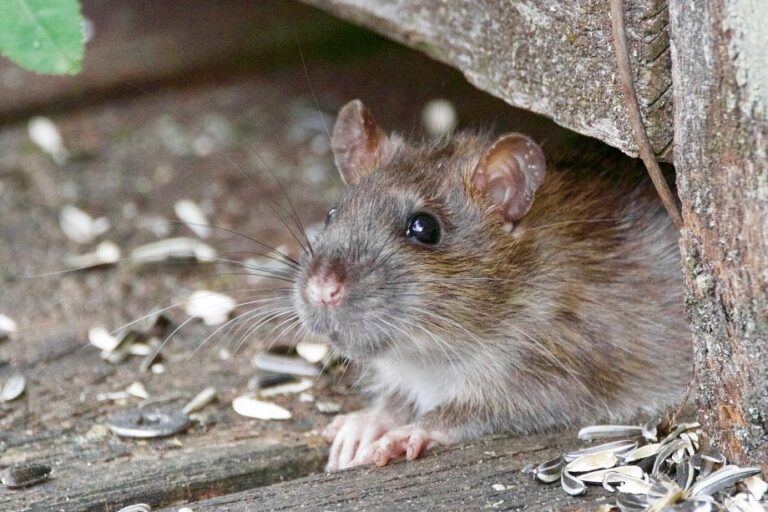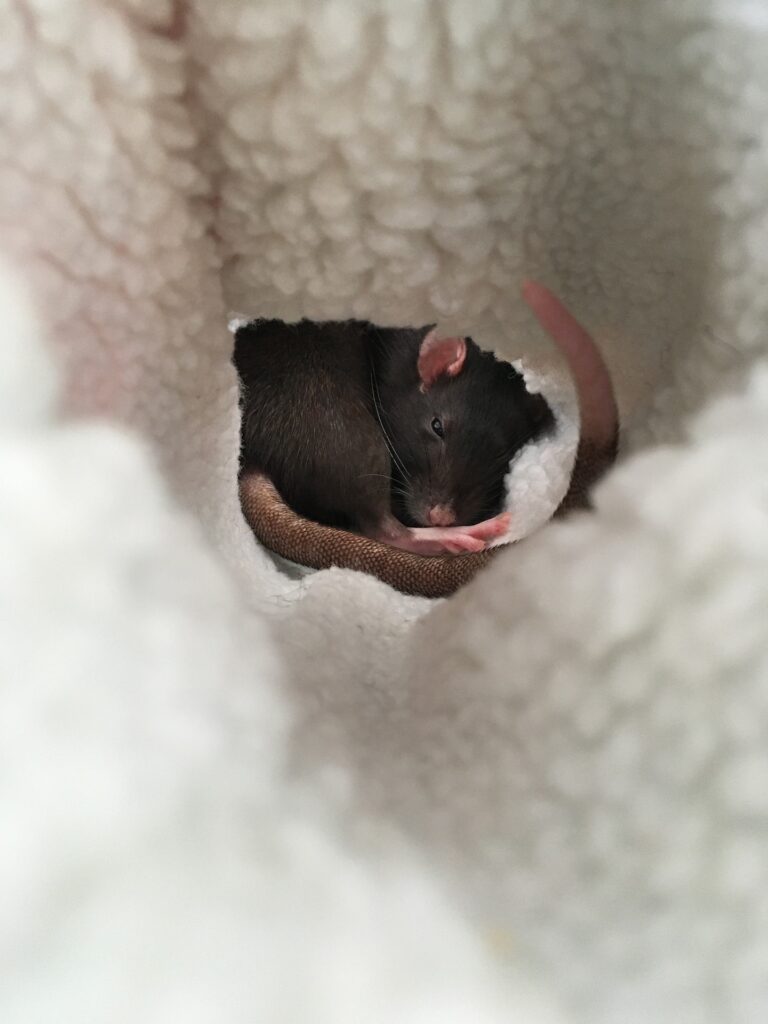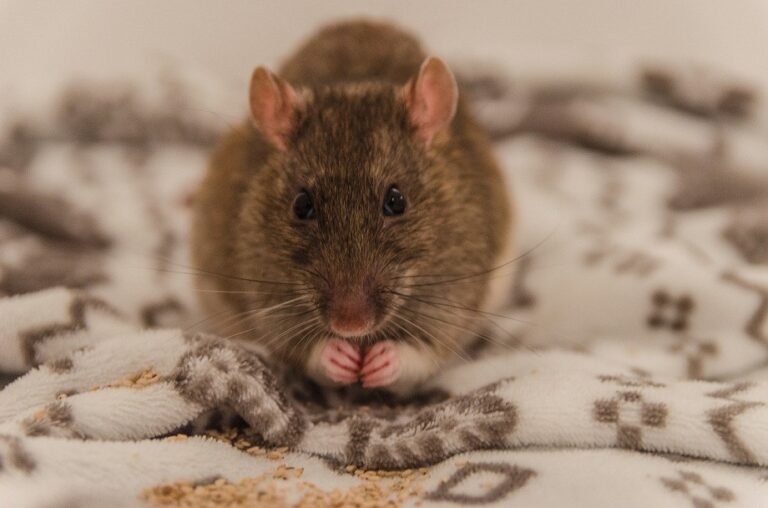Can Pet Rats Eat Cheese? (And Which Cheeses Not To Feed Them)
Rats are well-known for their love of cheese. But is this reputation well-founded or just another old wives tale?
Read on to find out whether you can and should feed your pet rat cheese.
Can Pet Rats Eat Cheese?
Some cheeses are safe to feed your pet rat. As a general rule, you should go with plain cheeses and stay away from any cheese that is too creamy or contains additives.

Below we have included a complete list of cheeses you can and can’t feed your pet rat. Be sure to check it out before giving your rat cheese to be on the safe side.
Do rats even like cheese?
While humankind has long associated the rat as a cheese-loving creature, this reputation has more to do with opportunity than taste.
Since the Middle Ages, rats have gone after cheese because it was easily reached and did not expose them to notice by humans. Cheese tended to be aged, either by hanging it high up, where rats could easily clamber about and humans rarely think to look, or in dark places, where rats are naturally inclined to hang about.
Generally speaking, rats will only eat most cheeses if they have little to no other choices for food.
What kind of cheese can rats eat?
Provided that your pet rat does not happen to have a lactose intolerance, some cheeses are suitable for feeding.
Here is a list of cheeses that rats can eat:
- Appenzeller
- Cheddar
- Colby
- Edam
- Emmental
- Goat cheese
- Gouda
- Gruyere
- Red Leicester
- Muenster
- Parmesan
All of these cheeses are acceptable to feed your pet rat as a treat, even if they come from a brand like Kraft or Babybel.
This is because these cheeses all come from the milk of a cow or goat and do not have anything extra added. In essence, any plain milk cheese is acceptable provided it does not also contain nuts, chili peppers, or certain green vegetables.
Colby is fine, but Colby jack is not due to the inclusion of spices. Sharp cheddar is also fine as it is just an aged version of normal cheddar.
Types of cheese rats can’t eat
Several kinds of cheese are a bad idea to feed to rats, either due to what’s in them or how they are made. Other cheeses tend to be poor choices due to being exceptionally soft or excessively chewy.
Soft cheeses call for molars to break down before swallowing them, and since rats lack molars, they can choke on these sorts of “gloopy” cheeses.
Remember, rats cannot vomit, so choking is a more significant hazard to a rat’s life.
Don’t feed your rat the following cheese:
- American cheese
- Brie
- Blue cheese
- Camembert
- Cream cheese
- Cottage cheese
- Feta
- Gorgonzola
- Mascarpone
- Mozzarella
- Monterey jack
- Pepper jack
- Provolone
- Ricotta
- Queso Blanco
- Stilton
- Swiss
While this list is far from exhaustive, it covers a large variety of cheeses to avoid feeding your pet rat. If you come across a cheese not mentioned on either this list or the previous one, compare it to those cheeses.
If you still are not sure about feeding your rat by comparing your cheese to these other cheeses, feed him something else and skip the risk of harming your pet.
Can rats eat raw, uncooked cheese?
Uncooked cheese comes from large curds that are then heated at a lower temperature than cooked cheese. This heating also pushes out some of the whey from those curds.
When you consider that cheddar cheese is a raw form of queso, it makes sense that the answer to this question is “yes.” Raw, uncooked cheeses are just fine for rats to eat. Other notable uncooked cheeses include morbier, Spanish manchego and Tomme de Savoie.
Can rats eat cheese puffs?
Cheese puffs are a type of snack food consisting of puffed little wads of corn covered with cheese-flavored powder. Because the powder contains little if any actual cheese content, you can likely give them to your pet rat, albeit in limited quantities.
Can rats eat cheese strings?
Yes, rats can eat cheese strings; the real question is whether those strings come from a safe cheese. Cheese strings are simple pull-away strands of a particular variety of cheese. If that cheese is safe to eat by itself, chances are good that the strings will be fine, so long as they do not have extra little bits added in.
Can rats eat mac and cheese?
The answer to this question is entirely dependent upon whether this is homemade macaroni and cheese or if it is store-bought from a box.
- When it comes to homemade varieties, consider the cheeses used to make the cheese sauce and make your call based on that.
- When it comes to store-bought varieties, look into the ingredients list. If the cheese element comes from a powder, you are likely fine to give some to your rat; if the cheese element comes as a gooey sauce like Velveeta’s Shells and Cheese, it would probably be best to provide it with something else.
Can rats eat vegan cheese?
Vegan cheese is made with soy and, considering the level of fat found in most cheeses, may actually be a safer alternative for your pet rat, especially if you want to put him on a diet.
Can rats eat smoked cheese?
Other than altering the sharpness of a cheese’s taste, the smoking process does nothing to change a cheese’s place on the lists of safe and unsafe cheeses. In short, if you have some smoked cheddar, there is no harm in giving your rat a little.
Can rats eat shredded cheese?
Shredded cheese has no dietary issues that make it distinct from regular cheeses. This means that shredded cheese is as dangerous or safe as the source cheese in its normal wheel, brick, or other whole forms.
Should you feed your pet rat cheese?
Cheese is fine to give a rat in limited quantities. While some people might consider using cheese as a reward for training, it may be better to use peanut butter for such purposes, if only for health reasons.
How often can you give your pet rat cheese?
As long as you stick to cheeses on the safe cheeses list, you can bestow your rat with a bit of cheese every so often. Ideally, give it a small piece once a week.
As previously mentioned, not all cheeses will attract a rat’s interest; if your rat barely touches his treat, consider giving him a different safe cheese. It is important to remember that cheese is high in fat, making it harmful for a rat’s health when consumed in excess.
Final Thoughts
Yes, you can give your rats cheese if you need a binary answer to the question of whether or not you can feed cheese to a rat, but remember that context is crucial to this question.
Not all cheeses are equally suitable to a rat’s diet; some cheeses are made with extra materials like peppers and nuts that can pose great difficulty to a rat’s digestive abilities or run the risk of causing fatal choking.
If you want to treat your rodent to a bit of Roquefort or a chunk of Colby, stick to the varieties of cheese found on the list of safe cheeses, and even then, only give them to your rat in small amounts and no more frequently than once a week.
